Trident whistleblower William McNeilly hands himself in
- Published
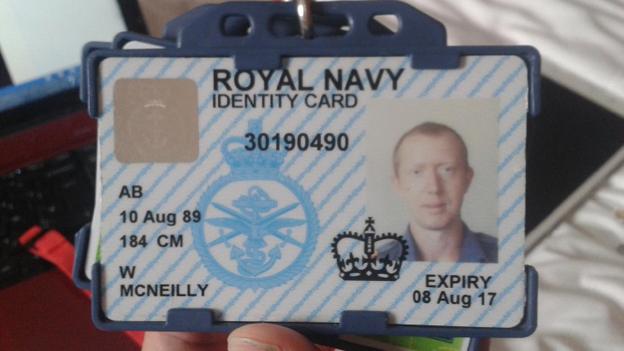
Able Seaman McNeilly had gone on the run
A Royal Navy submariner who criticised Trident nuclear submarine safety procedures has handed himself in to police on his return to the UK.
William McNeilly, 25, went on the run after alleging the Trident missile programme, based on the Clyde, was a "disaster waiting to happen".
Able Seaman Mr McNeilly, from Belfast, has written a report, external, detailing "serious security and safety breaches".
The Navy said the fleet operated "under the most stringent safety regime".
The MoD said Mr McNeilly was "apprehended" by Royal Navy Police at Edinburgh Airport on Monday night and was being held at a military establishment in Scotland.
An official investigation was launched after Mr McNeilly raised his safety concerns in an internet post.
He said he was an Engineering Technician Submariner who was on patrol with HMS Victorious this year.
A Royal Navy submariner who went missing after criticising the safety of Trident nuclear submarines hands himself into police
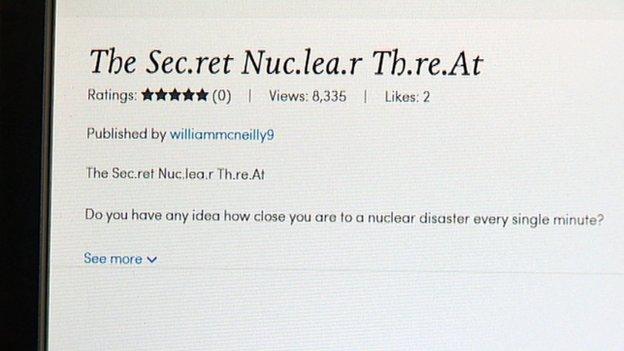
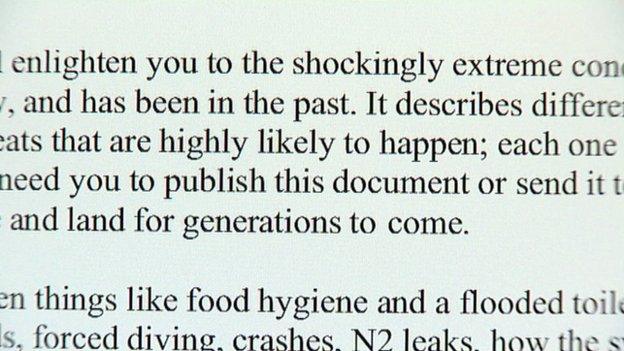
Victorious is one of the four submarines based at Faslane on the Clyde which are armed with the Trident missile system.
Mr McNeilly has written an 18-page report, called The Secret Nuclear Threat, detailing what he claims are serious security and safety breaches on board the vessel.
Incidents included in his report varied from complaints about food hygiene to failures in testing whether missiles could safely be launched or not.
He described security passes and bags going unchecked at the Faslane submarine base on the Clyde, alarms being muted "to avoid listening" to them, and stories of fires starting in missile compartments.
Mr McNeilly said he raised these and other concerns through the chain of command on multiple occasions, but that "not once did someone even attempt to make a change".
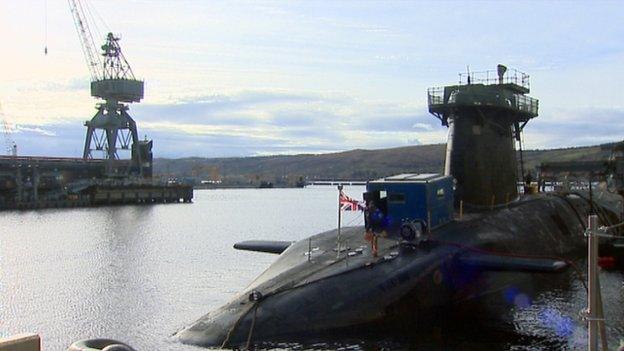
Mr McNeilly said the Trident missile programme was a disaster waiting to happen
He insisted that he has been careful about the information he had chosen to release so as to avoid prejudicing security.
Speaking to the BBC, Mr McNeilly said he was "not hiding from arrest".
He said prison would be "such a nice reward for sacrificing everything to warn the public and government".
He added: "Unfortunately that's the world we live in. I know it's a lot to sacrifice and it is a hard road to walk down, but other people need to start coming forward.
"Now I have no career, no money, no freedom, no chance of spending quality time with my family and friends. But I also have no regrets. There is no better feeling than truly serving the people.
"Finding this path wasn't hard, given the circumstances it was practically illuminating. I have faith that one day the people with the power to make a difference will understand where I'm coming from, and start working towards creating a better world."
Safety regime
On Monday, a post on a Facebook profile apparently belonging to Mr McNeilly said he had "moved between countries, changed location almost every day", but now "lacks the resources to remain undetected".
"I will be handing myself into the police today," it said.
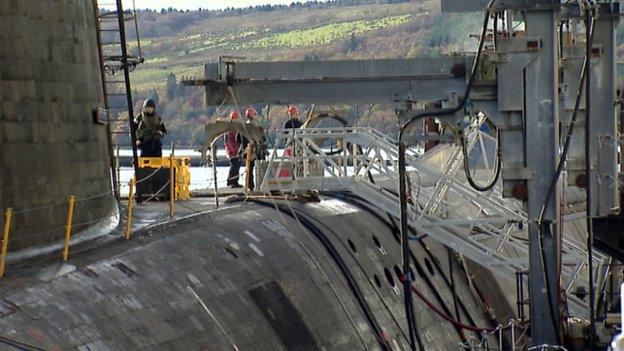
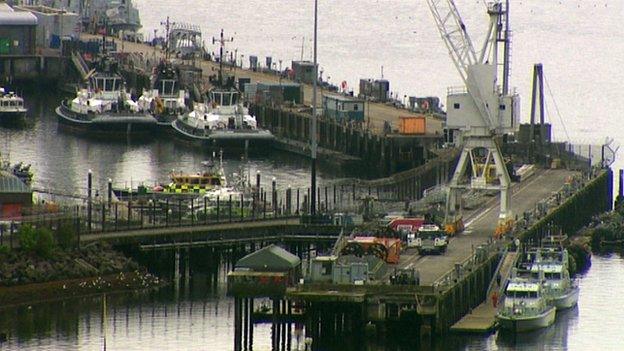
There are four submarines, armed with the Trident missile system, based at Faslane on the Clyde
A Navy spokesman said: "The Royal Navy takes security and nuclear safety extremely seriously and we are fully investigating both the issue of the unauthorised release of this document and its contents.
"The naval service operates its submarine fleet under the most stringent safety regime and submarines do not go to sea unless they are completely safe to do so."
The spokesman also said the Navy "completely disagreed" with Mr McNeilly's report, claiming that it "contains a number of subjective and unsubstantiated personal views, made by a very junior sailor".
However, they added that it was "right" that the contents of the document were considered in detail.
The SNP's Westminster leader Angus Robertson said the report read as "a nightmare catalogue of serious safety breaches aboard and alongside these nuclear-armed submarines" and called for the Ministry of Defence to make public the results of its investigation.
He added: "Failure to follow standard safety procedures is unacceptable in any workplace but on a Vanguard submarine on patrol it could result in extreme tragedy not just for those on board but indeed for the entire planet."
- Published19 May 2015
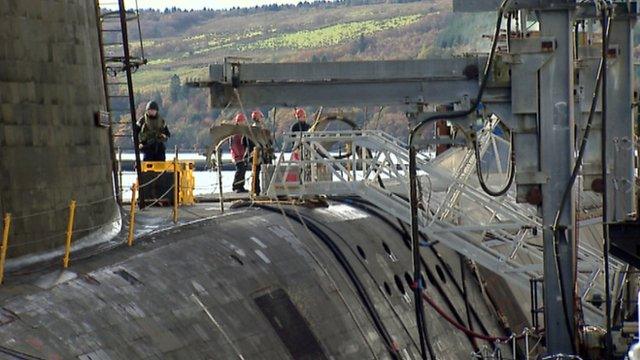
- Published18 May 2015
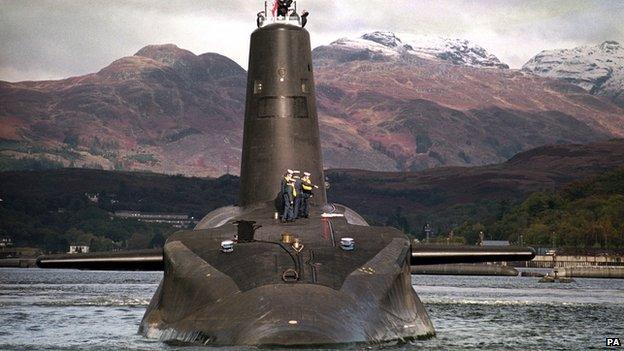
- Published26 February 2015